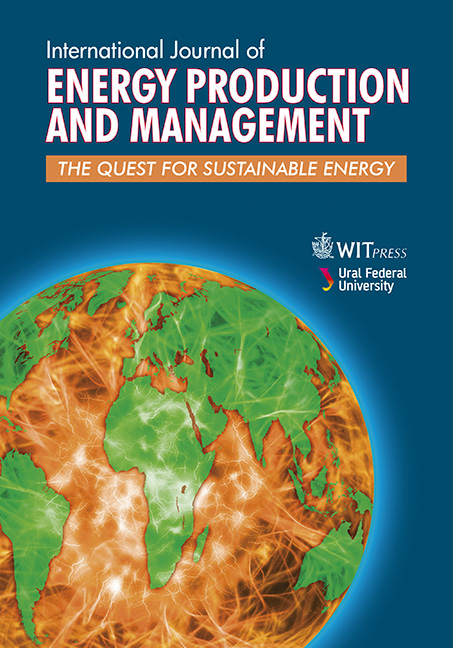Solid-recovered fuel to liquid conversion using fixed bed gasification technology and a Fischer–Tropsch synthesis unit – Case study
Price
Free (open access)
Volume
Volume 5 (2020), Issue 3
Pages
10
Page Range
212 - 222
Paper DOI
10.2495/EQ-V5-N3-212-222
Copyright
WIT Press
Author(s)
Jakub Čespiva, Jan Skřínský, Ján Vereš, Karel Borovec & Mateusz Wnukowski
Abstract
In order to utilise energy-rich solid waste, its liquid conversion into valuable hydrocarbon (HC) chains is one of the ways followed worldwide to decrease the oil processing and waste landfilling at the same time. The unique fixed bed updraft gasification reactor with an oscillating circular grate, situated in VŠB – Technical University of Ostrava, Czech Republic, can generate up to 90 m3·h−1 of CO and H2-rich synthetic gas. Such valuable mixture is suitable for the gas to liquid conversion in Fischer– Tropsch Micro Catalyst Bed (F-T MCB) unit, where more complex substances of higher temperature and pressure form in the environment. This article focuses on solid-recovered fuel (SRF) gained as a mixture of industrial and communal waste sources. Gasification of such material in the fixed bed reactor can produce approximately 600 and 250 m3 of CO and H2, respectively, per ton of SRF in the abided gasification conditions. The gas, retrieved from the process, undergoes a thermochemical reaction on the surface of a catalyst within the reactor of the Fischer–Tropsch unit. As a result, a highly valued HC liquid is achieved from the suitable, non-recyclable waste treatment. Cobalt and iron catalysts in their plain form, as well as the catalysts enriched with Mn/K enhancers are put in comparison in this study. The quality and quantity of the synthesis product are examined and the technological aspects of both units are described. The amount of HC synthesis product ranges from 18 to 45 kg per ton of fuel. The composition tends to form HC chains in favour of groups of alcohols and alkanes.
Keywords
cobalt catalyst, Fischer–Tropsch synthesis, fixed bed reactor, gasification, iron catalyst, solid-recovered fuel, waste management




